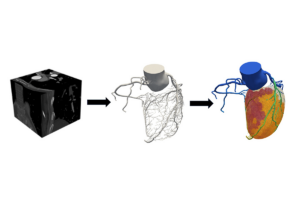The University of Texas at Austin welcomes today’s vote by the Board of Regents to invest in building a new medical school that will be part of our flagship university.
The university also applauds state Sen. Kirk Watson for his leadership in developing the “10 in 10” initiative to improve health care in Central Texas, which set the stage for today’s vote and could culminate with a new medical school.
“UT has a great impact on Texas and the world. With a medical school, it would be even greater,” said President Bill Powers. “The founding of a medical school would be an enormous event in the life of the university, would offer dramatic new opportunities for our students and our faculty, and would advance health care in Central Texas.”
The Regents’ decision to allocate up to $30 million a year from the state’s Available University Fund to establish a medical school will allow the university to engage in world-changing medical research and attract top faculty members and students. Just as important, it will ensure more doctors, new jobs and better medical care for Austin, the largest city in the country without a medical school or teaching hospital.
“This shows that our new model one relying on innovative partnerships, the coordination of resources, and a ton of creativity and hard work is working,” Watson said. “This effort has been about building a bridge to a modern health care system and economy. The Board of Regents vote, along with other recent announcements, puts us most of the way toward completing that bridge.”
Along with a pending $250 million commitment from the Seton Healthcare Family for a new teaching hospital, today’s vote by the University of Texas System Board of Regents brings a medical school closer to reality than ever before. It clears the way for discussion about a possible site for the school and other important issues that must be resolved.
A new medical school would build on world-class programs at The University of Texas at Austin that are already dedicated to advancing medical research and improving health care. These include the Department of Biomedical Engineering, the Dell Pediatric Research Institute, the School of Nursing, the College of Pharmacy, the College of Natural Sciences and the Department of Kinesiology and Health Education in the College of Education.



